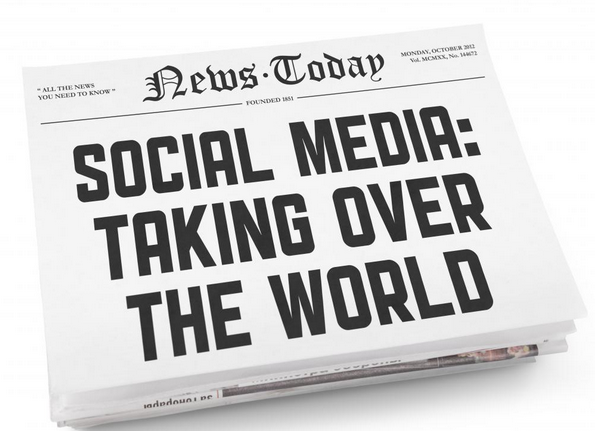ml662610@ohio.edu
Everyone hide under your desks, social media is coming! Actually, it's already here and it's creating quite a stir. Journalists have been dealing with the dilemma of ethical electronic journalism, since the revolution of the backpack journalists. Let's cut to the chase, the Internet, social media and blogging in general are never going to leave. In all honesty, it's only going to grow, so the argument shouldn't be how do we save "old media," but how do we create the highest standards for "new media."
 |
| wisegeek.org |
The values and foundations on which journalism was built shouldn't be lost, but progress in the field shouldn't be halted either. The world's attention is moving online, and journalist can't deny that fact. Journalists have never had an "office job," so why not move your desk to the Web. In that sense, is the shrinking of the newsroom a bad thing? Social media allows journalists to reach more generations and ethnicities through a single tweet. There is a greater chance to join conversations around the world on global issues, as well as, have conversations with mass amounts of people. People are craving news, and there's no doubt they're using any medium to find it. Why is change a bad thing when social media reaches more people than a circulation of a newspaper?
However, social media is a great power and responsibility to hold. We all know the saying, "With great power comes great responsibility." This isn't a time for carelessness of ethical journalism to preside, but a greater call of action to redefine and re-establish expectations in the field. Digital Media Ethics author Stephen J.A. Ward said it best, "Media ethics need to be rethought and reinvented for the media of today, not of yesteryear."
Why it's difficult
Social media enhances the readers' conversations on issues and expansion of news coverage, but more than ever, everyday citizens are engaging in journalism that blurs the lines of "who is a journalists?" When the lines become blurry is it a trained journalist's job to hold others responsible for what they post, and direct people to correct sources in times of confusion?
 |
| howtowritebetter.net |
Reporters are encouraged to create a "brand" for their journalism through multiple social media platforms. Ward explains that the problem is when a reporter publishes an unbiased story about an upcoming political election, but then tweets their personal endorsements for a political candidate. Now, readers feel there is a lack of impartiality. In the world of social media and journalism, journalists must limit their public opinion on social sites. I agree with Ward when he suggested, "The ethical challenge is to develop social media guidelines that allow reporters to explore new media but also draw reasonable limits on personal commentary."
In the world of social media, it's like being on the job 24/7. Through social media readers have direct access to journalists at all times. Being on social media also makes less room for mistakes and increases the level of accountability. Is this too much responsibility for journalists to handle, or just a part of the job in today's society?
Overall as journalists, we can't be afraid of the inevitable, but be ready to embrace new challenges and make the future of our field our own.
No comments:
Post a Comment